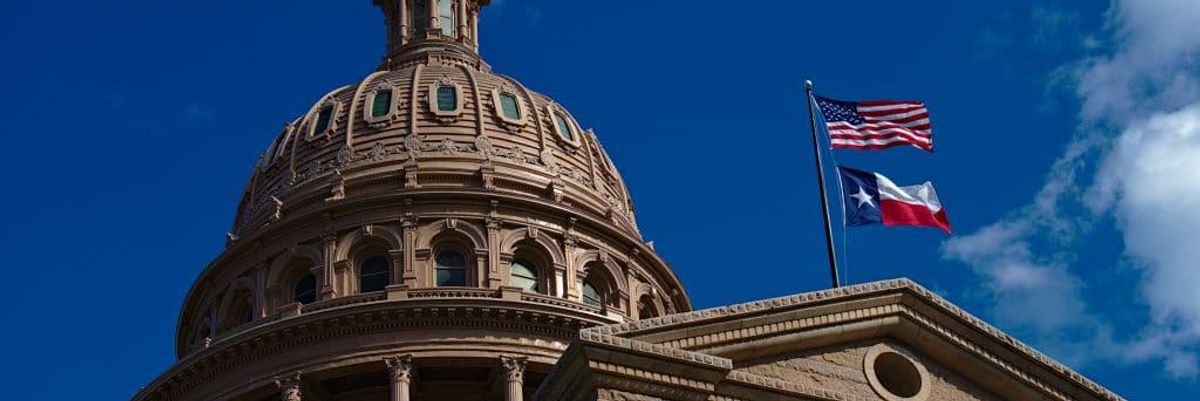In Texas, Abortion Banned, Bounty Hunters Created & Guns Expanded

Well, it’s official. It’s easier to carry a gun than to get an abortion in the state of Texas.
Texas’ new law that bans abortions as early as six weeks went into effect on Wednesday as part of the 666 laws the Texas legislation recently passed, including a ban on “vaccine passports,” and “constitutional carry” that allows Texans ages 21 and older to carry a gun without training or a license. A bill with tighter voting restrictions is currently waiting for Governor Greg Abbott’s signature.
Texas Senate Bill 8, also known as the Texas Heartbeat Act, prohibits an abortion if an ultrasound detects a “fetal heartbeat” that can happen around six weeks of pregnancy. The name of the law itself is misleading because at this stage there is no “heart.” There is only a mass of cells that produce an electrical “flutter” that advanced medical technology has only recently been able to detect. The only exception this bill allows is if the mother’s life is in danger. The mother would have to birth a child from rape or incest if the victim does not discover the pregnancy within 6 weeks of the event.
It’s one of the country’s strictest abortion bans as most women don’t know if they’re pregnant at six weeks.
Rather than the state enforcing this, the bill allows private citizens, including those outside the state, to sue abortion providers and anyone involved with the violation of this law. The 19th writes that the legal risk is low for anyone who helps someone leave Texas to obtain an abortion or provide funds, but the law could still lead to trouble. KUT reports that the person suing doesn’t need a connection to the patient or the person they are suing, and anyone who successfully sues under this law can be rewarded at least $10,000. Texas Tribune adds that this mechanism allows the bill to “skirt Roe vs. Wade,” the landmark 1973 decision.
In a 2010 report from National Latina Institute for Reproductive Justice (the Latina Institute), Latinas have more than twice the abortion rate (28 abortions per 1000 women) than white women (11 abortions per 1000 women), which is in part by Latinas’ higher pregnancy rate.
According to the Latina Institute, Latinas and women of color face obstacles, such as economic limitations, immigration status and lack of healthcare access, that prevent them from seeking safe abortions.
The Hyde Amendment doesn’t allow the federal government to cover the procedure for women on Medicaid, except in the case of rape, incest and life endangerment.
A group of abortion providers and advocacy groups submitted an emergency request for the Supreme Court to block the ban, but the Court’s lack of response allowed the law to go into effect at the first of the month. Their final response, that came almost 24 hours later, was a refusal to block the ban with a 5-4 vote. Supreme Court Justice Sonia Sotomayor, an advocate for reproductive justice, wrote in her scathing dissent that the majority of the Justices “have opted to bury their heads in the sand.”
She continues, “Because the Court’s failure to act rewards tactics designed to avoid judicial review and inflicts significant harm on the applicants and on women seeking abortions in Texas, I dissent.”
People have come together on social media to share resources that support providers and those seeking to have the procedure. AOC set up a campaign to collect donations for 10 organizations. The ACLU stated they will continue to defend abortion access and reproductive freedom. While this fight continues, there is a website to find abortion providers and resources at needabortion.org.


 Photo by
Photo by  Photo by
Photo by  Photo by
Photo by  Photo by
Photo by  Photo by
Photo by  a group of monarch butterflies on a treePhoto by
a group of monarch butterflies on a treePhoto by 

